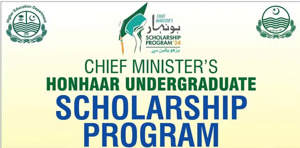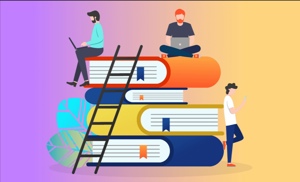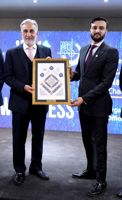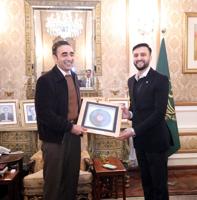The Punjab School Education Board (PSEB) has released the updated syllabus for Class 11 (1st Year) for the academic year 2025. This new syllabus is designed to improve students’ understanding of core concepts while encouraging practical learning and critical thinking. It provides a modern approach to education for Science, Commerce, and Arts streams. Students who understand and follow this syllabus will have a clear path toward effective exam preparation and academic success.
Key Features of the New Syllabus
The new Class 11 syllabus emphasizes a balanced approach between theory and practical learning. One of its key features is the inclusion of updated subjects to match contemporary educational needs. Science students will explore Physics, Chemistry, Biology, Mathematics, and Computer Science, while Commerce students will focus on Business Studies, Accountancy, and Economics. Arts students will cover subjects like History, Political Science, Sociology, Psychology, and Philosophy. Languages such as English, Urdu, and Punjabi are also included to strengthen reading, writing, and comprehension skills.
Focus on Conceptual Learning
Unlike earlier syllabi that emphasized rote memorization, the revised syllabus encourages conceptual learning. Students are expected to understand principles and theories deeply instead of merely memorizing facts. This approach develops analytical thinking and problem-solving skills, helping students perform better in exams and practical applications. By engaging with the material critically, students gain confidence in tackling questions that require reasoning, application, and logical solutions. Conceptual learning also prepares students for higher education challenges.
Practical Components
The new syllabus gives special attention to practical learning. Science subjects such as Physics, Chemistry, Biology, and Computer Science now include structured laboratory work. These practical sessions allow students to observe theoretical concepts in action, perform experiments, and record observations. This hands-on approach helps students retain knowledge better and develop essential scientific skills. Practical learning also contributes to better grades, as many exams allocate marks for laboratory work and problem-solving exercises.
Updated Examination Pattern
Class 11 examinations are structured to test both theoretical understanding and practical knowledge. The exam pattern includes multiple-choice questions (MCQs), short-answer questions (SAQs), long-answer questions (LAQs), and practical-based questions for relevant subjects. Practical exams assess hands-on abilities, data analysis, and experimental results. This structure ensures students are evaluated comprehensively, rewarding not only memorization but also understanding and application of knowledge. Understanding the pattern helps students plan their studies effectively.
Subject-Wise Overview
The Class 11 syllabus is divided according to different streams. In the Science stream, students study Mathematics, Physics, Chemistry, Biology, and Computer Science, focusing on analytical and logical skills. Commerce students study Business Studies, Economics, and Accountancy to understand business concepts and financial literacy. Arts students explore subjects such as History, Geography, Political Science, Sociology, and Psychology to develop critical thinking, cultural awareness, and social understanding. Languages like English and Urdu focus on reading comprehension, grammar, and writing skills.
List of New Books for Class 11
The following table contains the latest books for Class 11 that match the new syllabus. You can link each book to your website pages for easy student access:
| Subject | Book Link |
|---|---|
| Chemistry | View Book |
| Biology | View Book |
| Computer Science | View Book |
| Math | View Book |
| Economics | View Book |
| Civics | View Book |
| Statistics | View Book |
| Physics | View Book |
| Urdu | View Book |
| English | View Book |
| Punjabi | View Book |
| Education | View Book |
| Arabic | View Book |
| Geography | View Book |
| Philosophy | View Book |
| Physical Education | View Book |
| Psychology | View Book |
| Ethics | View Book |
| Persian | View Book |
| Principles of Accounting | View Book |
| Business Mathematics | View Book |
| Tarjuma ul Quran | View Book |
| Urdu Optional | View Book |
| Home Economics | View Book |
| English Grammar | View Book |
| Urdu Grammar | View Book |
| Human Geography | View Book |
| Islamiat | View Book |
Tips for Effective Preparation
To succeed in Class 11, students should carefully follow the new syllabus and plan their studies. Creating a timetable that balances all subjects is essential. Students should practice previous years’ question papers and sample papers to understand exam trends. Regularly revising both theoretical and practical components ensures retention and confidence. Emphasizing conceptual understanding rather than rote memorization is key. Staying updated with syllabus changes and practicing experiments or case studies in practical subjects will help maximize grades and learning outcomes.

Conclusion
The Punjab Board’s new Class 11 syllabus for 2025 is structured to enhance learning through conceptual understanding, practical exercises, and critical thinking. By following this syllabus, students can achieve academic excellence while gaining skills applicable in real-world scenarios. The syllabus prepares students for future education challenges and equips them with knowledge that goes beyond the classroom. Consistent study, practice, and understanding of concepts will help students excel in both exams and life.



.jpg)













Share your comments & questions here
No comments yet. Be the first to comment!